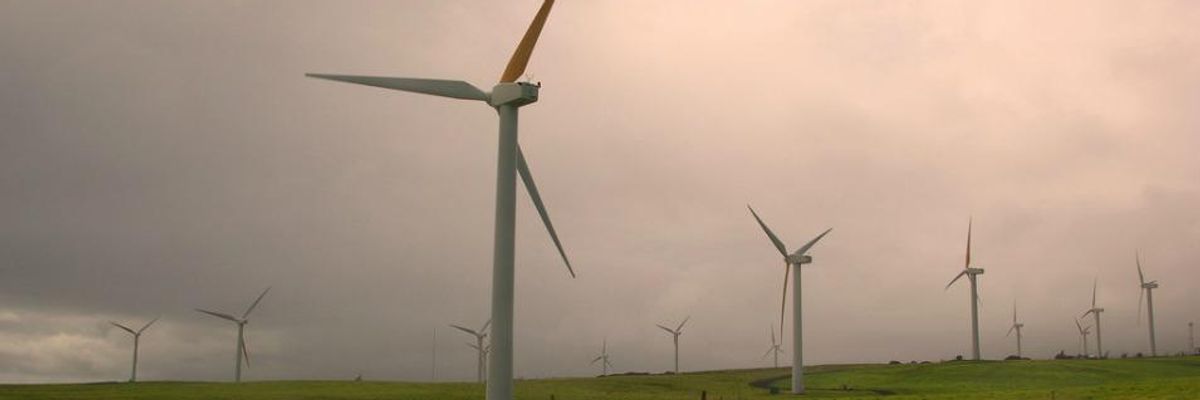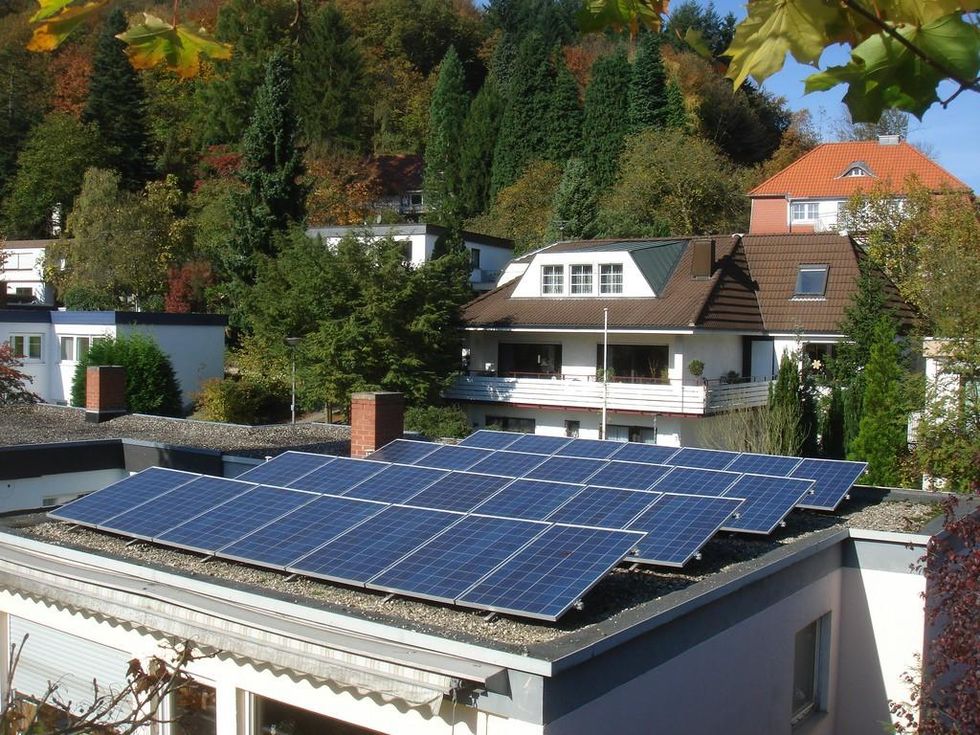As a new UN report finds that emissions pledges made by governments for the upcoming climate talks in Paris represent just half of what they need to be to keep warming under the 2C threshold, places around the world are proving themselves to be "bright spots" in the transition to a clean energy.
In one recent example, Austria's biggest state and home to over 1.6 million people, Lower Austria, said Thursday that all of its electricity is now being generated by renewables.
"We have invested heavily to boost energy efficiency and to expand renewables," Agence France-Presse quotes Erwin Proell, premier of Lower Austria, as telling reporters. "Since 2002 we have invested 2.8 billion euros ($3.0 billion) in eco-electricity, from solar parks to renewing (hydroelectric) stations on the Danube," Proell said.
Lower Austrian MP Stephan Pernkopf called the move "a clear and credible sign against nuclear power in Europe," adding, "We are a model for Europe."
And the state of Hawaii is making strides towards its 100% renewable goal as well. From the Huffington Post last week:
By the end of this year, 37 percent of the electricity generated on the Hawaiian Island of Kauai will come from a mix of renewable resources, including solar, hydropower and biomass.
The recent completion of the state's largest solar array is a big help toward that goal, as well as toward the aggressive statewide goal of 100 percent renewable energy by 2045.
The Canadian city of Vancouver this week also offered a step forward, with its city council approving a strategy to have 100% of its energy powered by renewables by 2050--a goal, some experts have noted, is realistic.
Mayor Gregor Robertson said Vancouver was "leading the world's cities on climate change."
"With a pragmatic approach to buildings and transportation, we eliminate our reliance on fossil fuels and make Vancouver a cleaner, healthier, and more resilient city," he said.
The energy transition these places are undertaking--which also happens to strengthen local economies--is exactly what climate campaigners have stressed is not only doable but necessary.
A report issued by Greenpeace in October stated that "100% renewable energy for all is achievable by 2050, and is the only way to ensure the world does not descend into catastrophic climate change."
"We must not let the fossil fuel industry's lobbying stand in the way of a switch to renewable energy, the most effective and fairest way to deliver a clean and safe energy future," said Greenpeace International Executive Director Kumi Naidoo. "I urge all those who say 'it can't be done' to read this report and recognize that it can be done and must be done for the benefit of people around the world."
In the U.S., making the switch would just be doing what voters want, as a pair of recent polls have shown vast support for the expansion of renewable energy, as well widespread support for federal tax incentives that support such industries.
Using data from Stanford University, The Solutions Project, which advocates for the transition to a clean energy system, created this interactive map to show the renewable energy mix each U.S. state could use to achieve the goal:
Making that happen, though, is not reliant on available technology alone, researchers note.
"The greatest challenge to energy transitions concerns whether political, institutional, and cultural changes can occur fast enough to support technological changes," Jennie Stephens and Elizabeth Wilson wrote Thursday at the Bulletin of the Atomic Scientists.
Yet, they add, "optimism about energy transformations is justified--an optimism grounded not only in technology but also in the socio-technical changes that are accompanying renewable energy transitions. The linkages between social changes and technological changes furnish reason for hope. These bright spots ['places where efforts to replace fossil fuels with renewable-based energy systems are already advancing rapidly'] highlight a broad potential for successful energy transitions and more sustainable energy systems."


